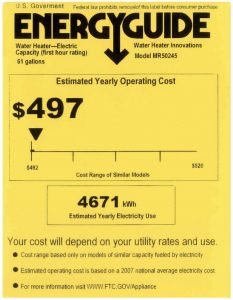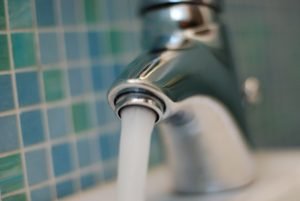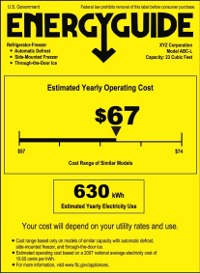Understanding everything about household water heaters can be a very tricky process. There are tons of technical terms you need to be familiar with, in order to fully understand and safely utilize a water heater. One of those unfamiliar topics is the water heater’s first-hour rating.
The first-hour rating of your water heater is an important information that you should always be aware of, especially if you’re a first-time buyer. All of the water heater brands advertise with great specifications but the most important spec is the amount of hot water your water heater can produce within one hour! If you already own a water heater, then all the more reason you should know about this rating. If not, then you should learn it ASAP. Regardless if it’s known to you or not, this article will explain what this rating is all about. After reading about this rating, check out our brand reviews and find the best heater for your situation!
What is the first-hour rating of a water heater?
 By definition, first-hour rating means the capability of your water heater to deliver fully heated water in the first hour. It is usually influenced by your water heater’s max capacity and recovery rate. Furthermore, when you buy a heater, it’s expected to come with a first-hour rating label, as mandated by the government.
By definition, first-hour rating means the capability of your water heater to deliver fully heated water in the first hour. It is usually influenced by your water heater’s max capacity and recovery rate. Furthermore, when you buy a heater, it’s expected to come with a first-hour rating label, as mandated by the government.
To get a water heater’s first-hour rating, you need to multiply the tank’s max capacity by 0.70 (70%) and add the result to the heater’s recovery rate. The total will be the first-hour rating, measured by gallons per hour, hence the term. You might ask, what’s the 70% percent for? Well, that is the amount of hot water the heater is capable of delivering on peak hour.
Why only 70%, you ask? To answer that question, you simply need to understand how a typical water heater functions. You see, when you consume hot water, new cold water will enter the tank, usually from the bottom, to replace the amount lost. This will cause the overall water temperature inside the reservoir to drop, as it’s being pushed out by the colder water that mixes in.
As you use more hot water, so does the amount of new water that comes in, making the rest of the hot water gradually colder. Once you’ve gone through 70% of your heater’s full capacity of hot water, the rest of the remaining amount will likely have gone cold.
However, a typical heater is set to heat up water as the hot amount goes out, and the cold one comes in. This is because the heater’s thermostat can sense the loss of heat, based on your set temperature level. Due to this intermittent heating, you can’t expect all 70% of hot water to be the same temperature that you desired.
Most residential heaters you can find in the current market will allow at least a 20 degrees drop of temperature from your set point. To put it simply, if you set your unit to heat water at 120 degrees, then expect hot water temperatures ranging from 100 degrees to 120 degrees, within the 70% amount.
How to compute the first-hour rating?
The standard formula for getting the first-hour rating of your unit is:
Tank capacity in gallons X 0.70 (rule of 70%) + recovery rate = first-hour rating in gallons per hour (gph).
Let’s say you have a water heater with a tank capacity of 50 gallons and a recovery rate of 40 gph. When you use the formula, here’s how it will look:
50 gallons X 0.70 + 40 gph = 75 gph first-hour rating.
This means that you can get 75 gallons of heated water in the first hour of use. With such key information at hand, you get a nice estimate on your daily hot water usage. You can also use this reference when buying a new heater for your family.
How do I determine what first-hour rating is for me?
Let’s face it, people use hot water differently. Every individual in your family has their own routine. However, there is an estimated amount of hot water that a family member commonly uses. So, you don’t have to measure everyone’s exact water use amount.
Here’s an activity reference of the average gallon of water per single use:
| Activity | Estimate gallons per use |
| Shower/bath | 20 gallons |
| Shaving | 2 gallons |
| Washing hands/face | 4 gallons |
| Hair shampooing | 4 gallons |
| Hand dishwashing | 4 gallons |
| Automatic dishwasher | 14 gallons |
| Clothes washer | 32 gallons |
| Food preparation | 5 gallons |
 Remember, all the amounts above are only estimates, but most of the numbers are close to what a typical person uses. Furthermore, not all activities on the list need hot water. So, to make sure that you get a water heater that has a first-hour rating closest to your family’s water demand, just pick out the activities that require hot water during your peak hours.
Remember, all the amounts above are only estimates, but most of the numbers are close to what a typical person uses. Furthermore, not all activities on the list need hot water. So, to make sure that you get a water heater that has a first-hour rating closest to your family’s water demand, just pick out the activities that require hot water during your peak hours.
Peak hour simply means the time wherein your family will use the most hot water, either simultaneously or consecutively. You have to know that not all water heater models are capable of delivering hot water to two sources at the same time, so you need to consider this factor as well.
Nevertheless, just group the activities that will be commonly utilized during your peak hour, to get a good approximation of your demand. First, pick the activities that you think you’ll use hot water with. This will usually consist of shower, shaving, hair shampooing, and dishwashing by hand. But, you can add and take out activities as you see fit.
Afterwards, multiply each one based on how many people will use it in your family. So let’s say you’re a family of three, with a daughter. Chances are, your peak demand will be 3 showers, 1 shave (father), 2 hair shampooing (mother and daughter), and 1 hand dishwashing. By using the reference table up top, you’ll have 60 + 2 + 8 + 4 gallons, totaling at 74 gallons per peak hour.
With the 74 gph, all you need to do is find a water heater that has a first-hour rating with the same, close to it, or more, than such value. However, if your family normally uses hot water all throughout the day, then look for a heater that has a fast recovery rate.


Be the first to comment on "Water Heater First-Hour Rating Explained"